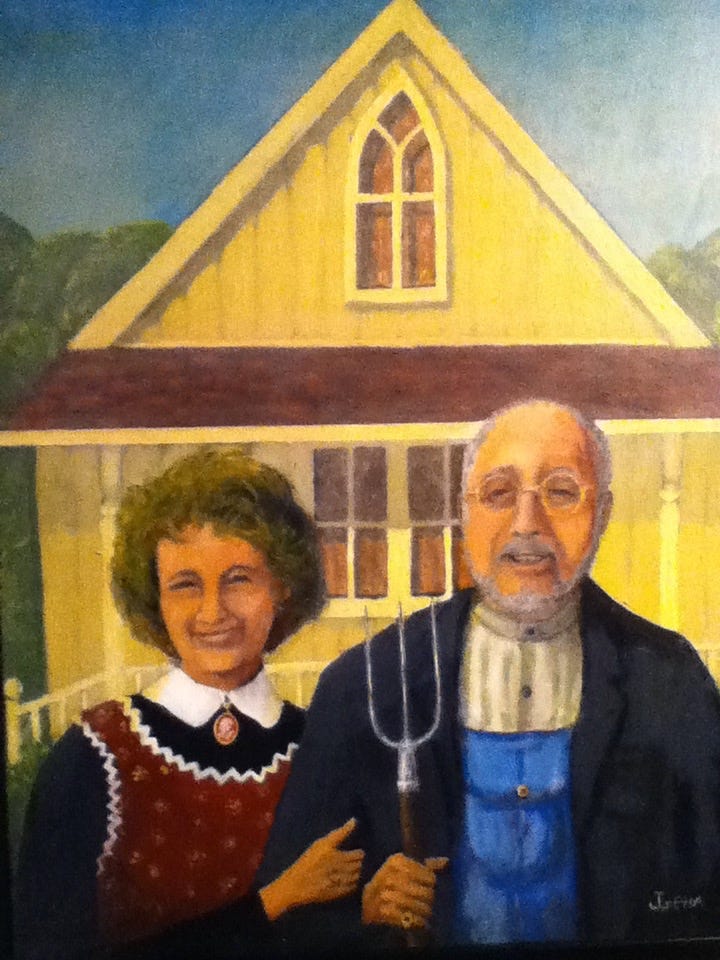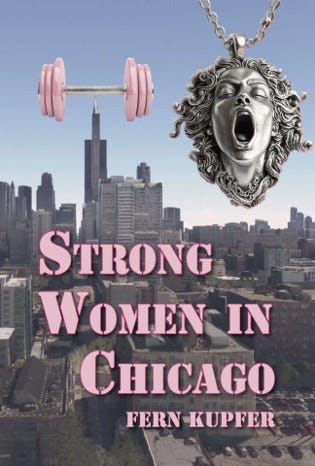Joe: Congratulations on your newly published novel, Strong Women in Chicago. Could we start by your telling us a little bit about how you became a writer? (I believe this is the first of the many questions you wrote for me.)
Fern: Thanks, Joe. Good to be with you today, as always.
Well, In 1968 I graduated from a state university in New York with a degree in English education. I majored in English because I loved to read. My mother told me if I became an English teacher, I would be home in time to make dinner for my husband.
I loved college. Although girls had a curfew and boys could stay out all night in the mid-sixties, there were other liberal policies. We smoked cigarettes (and sometimes other substances) in our dorm rooms. We talked long into the night pondering the meaning of life. I had amazing English professors who saw in me a budding writer and encouraged me to speak my mind.
1968 was a tumultuous time in our country but we were hopeful. Almost sixty years later and not so much for the hopeful part.
As a retired English teacher, I’ve graded thousands of student papers in the career my mother envisioned for me. And I married a man who does all the cooking.
By the way. I really like the cover of the book. Do you?
Joe: I do. But it is a little fierce
Fern: It is. I like that. You know, seeing the cover of your book when it comes out, is sort of like seeing the baby you just gave birth to. So much labor and then: “Oh, there you are! So thisis what you look like?” It’s a surprise! Maybe I’m easy to please, but . . .
Joe: Sorry for interrupting you here, but I wouldn’t call you easy to please.
Fern: Well, I have been pleased with the covers of all my books.
Joe: How many is that now?
Fern: Six books. I think I’m done.
Joe: So can you tell us a little bit about this new one. It’s a novel, isn’t it?
Fern: Yes. A totally made up story. This one is even a little sci-fi-ish.
Joe: You don’t usually like science fiction.
Fern: I don’t. But I thought the idea – the concept for the book – was too good to let truth stand in the way. It originated after our three daughters left home and were living in adventurous and perhaps dangerous places. Big cities: New York, Chicago, London.
I worried about their safety from afar. Gabi had a friend who was mugged in front of her apartment building in New York. Megan worked with alcoholic street people in London. Katie, before she moved to Chicago which seemed a rough city to me, lived for a few years in Wichita, Kansas. That was when the BTK serial murderer terrorized that city.
So I was worried about the girls. I had fantasies about a non-lethal defense weapon available to fend off muggers, rapists, garden-variety creeps. Something that would enable women to feel safe and to walk freely at night.
A defensive weapon that was powerful. But not a gun. Ideally, the defense weapon would be easy to use, yet would incapacitate an attacker. Maybe a spray –like Mace – but one that would not push back toward the victim.
This was a fantasy of mine. One of many.
Joe: I know you like revenge.
Fern: Anyway, years ago -- it was following the 9/11 terrorist attacks on the World Trade Center - - the veterinary research labs at Iowa State University were the focus of media attention. Seven envelopes of inhalation anthrax were mailed to news outlets. Do you remember?
Joe: I do. Katie was on a subway going to Brooklyn and told us that a friend of ours was quoted in The New Yorker.
Fern: Interestingly, there are substances, specific molds in feed-grain called vomitoxins. Really! These molds can cause a severe anti-peristaltic reaction in animals. Pigs being the most sensitive species.
So in the novel, it is an Iowa State veterinary pathologist who is visited by a farmer with the complaint: my pigs are vomiting. The lab analyzed the feed the farmer was using and isolated a particular mold spore. One that was not nearly as dangerous to animals as anthrax. And the mycotoxins in this spore were also not considered hazardous to humans.
Joe: How does this figure in the plot of your book?
Fern: Well, the research scientist in the book has a daughter, Lily, who is attacked in Union Station in Chicago. The novel begins with this violence. Which is soon followed by her father’s serendipitous discovery in his lab of a substance that, if mixed with a cleaning agent and inhaled, causes violent cramps and projectile vomiting.
Joe: Sounds interesting.
Fern: Thank you. That’s what you said after reading every single draft. I always appreciate your input.
Joe: But you don’t always take my suggestions. So then . . .
Fern: So then, there eventually develops a “feminist conspiracy,” abetted by women’s self-defense classes at SWIC (Strong Women in Chicago) to make the device available. And thus help to create a place that women have only dreamed of.
Joe: What’s that?
Fern: A place where they are safe from dangerous men.
Joe: Would you say that this is a comic novel?
Fern: Despite the violence in the first chapter, I think so. There’s a lot of vomiting which stops the bad guys in their tracks. So yes. I would describe this as a comic novel.
Joe:And they say that feminists have no sense of humor.
The Iowa Writers’ Collaborative
Have you explored the variety of writers, plus Letters from Iowans, in the Iowa Writers’ Collaborative? They are from around the state and contribute commentary and feature stories of interest to those who care about Iowa. Please pick five you’d like to support by becoming paid. It helps keep them going. Enjoy:





Congrats Fern! If you're doing any events in DSM, let me know--I'll come see you!
A fun read, as always.
Seems Joe has long since learned the secret of true happiness: “Always agree with the last woman you talk to and do exactly what she says!”
I came to this realization at age 56 late afternoon on a Sunday in March, 2021, and have been truly happy ever since.
Love you guys!